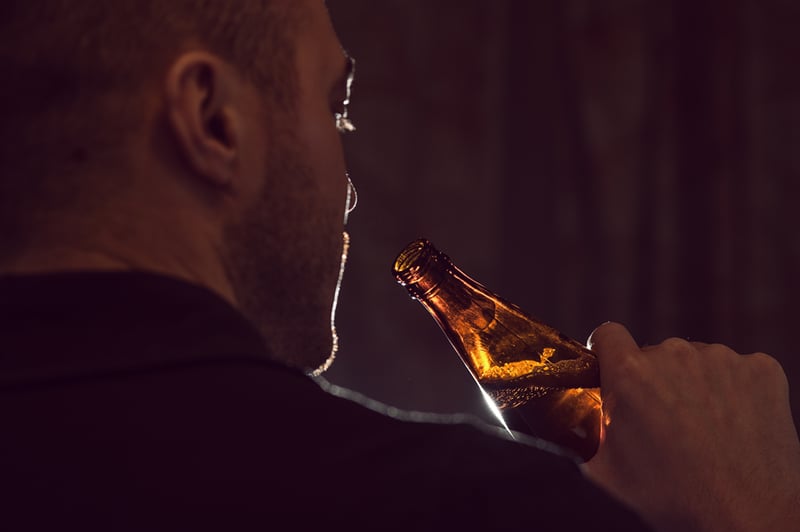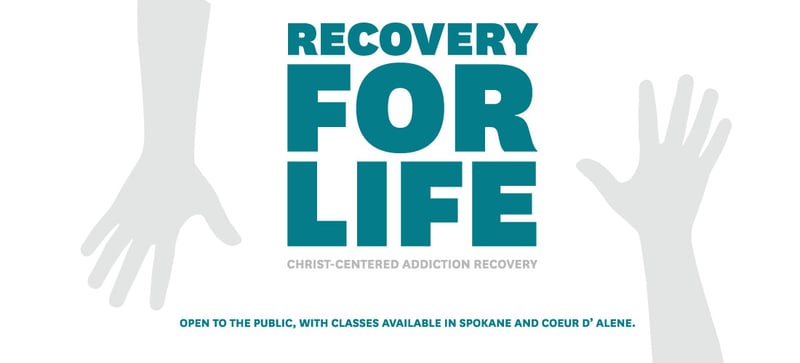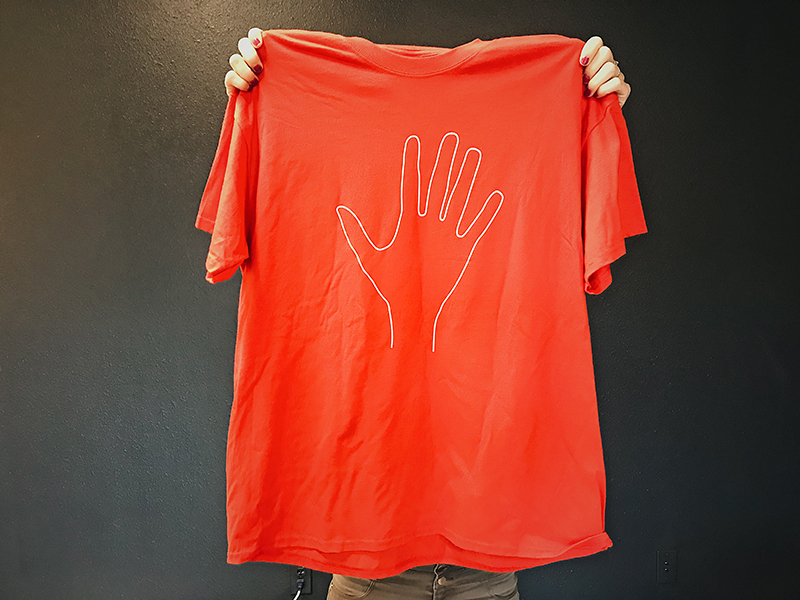2 min read
Gospel-Centered from the Start
“Let us hold unswervingly to the hope we profess, for He Who promised is faithful…Jesus Christ is the same yesterday, today, and forever.” (Hebrews...
You may notice we’ve changed the name of the annual event we used to call "graduation," and here’s why: The former name gave the impression that recovery is something that ends. But we are more concerned with people’s continued success and ongoing growth than in their completion of a program. Even as we celebrate the amazing work God has done in people’s lives, we know that especially during this first year on their own, they are vulnerable to relapse because they aren’t surrounded by the constant support and accountability they get while living at UGM. Here, Aftercare Manager Mike Doggett, who helps people about to leave the program make a plan for their lifelong wellbeing, speaks from experience about the need for continued support in ongoing recovery.
By Mike Doggett, UGM Aftercare Manager
At a recent UGM Recovery for Life men’s 12-Step meeting, the subject of relapse was brought up and the question was raised: “Is addiction a sin or a moral failure where all you have to do is repent and you will be cured, or is addiction a disease treated much like diabetes?”
We had individuals from both sides of this question who offered very compelling examples of why their beliefs were true and eventually had to admit that we had to agree to disagree on this subject and move on.
There are numerous references about “drunkenness” in the Bible, yet the word “addiction” or “alcoholism” is never mentioned. Neither are there references to “heart disease” or “diabetes” in the Bible, yet left untreated, these are killers. So is my addiction a moral failure on my part or is my addiction an incurable sickness?

At a recent training session I introduced myself as a “recovering alcoholic with 18 years of sobriety.” After the session I was approached by a woman who asked, “Why, after 18 years of sobriety, do you call yourself an alcoholic? Don’t you think God can deliver you from this addiction?”
This is a question I have often asked myself.
“Yes, I do believe God can deliver me from my addiction,” I said. “God is the ultimate healer and can heal anything. I have friends who were lifelong alcoholics who asked for deliverance from their addiction and have never had a compulsion to drink again. No treatment, no AA meetings, no relapses —they were cured.
“I, on the other hand, still suffer with what Paul talks about in 2 Corinthians 12:7-10: ‘So to keep me from becoming proud, I was given a thorn in my flesh, a messenger from Satan to torment me and keep me from becoming proud. Three times I begged the Lord to take it away. Each time he said, “My grace is all you need. My power works best in weakness.” So now I am glad to boast about my weakness, so that the power of Christ can work through me. That’s why I take pleasure in my weakness and in the insults, hardships, persecutions and troubles that I suffer for Christ. For when I am weak, then I am strong.’”
This thorn in my side is the reminder each time I walk into an establishment that serves alcohol that I have a weakness. I have to be ever vigilant of the cunning and powerful nature of Satan to pull me back into the abyss of addiction.
This same thorn is also what motivates me to work with those who may suffer from this condition.
The Big Book of AA describes those who are incapable of being honest with themselves - a huge barrier to their recovery. “Jane” (not actual name) is one of those unfortunates who have experienced numerous relapses after lengths of time in recovery.

Michael Dye, the creator and author of the Genesis Process, uses James 1:13-15 to describe addiction:
“Let no one say when he is tempted, ‘I am being tempted by God’; for God cannot be tempted by evil, and He Himself does not tempt anyone. But each one is tempted when he is carried away (bad choices) and enticed by his own lust. Then when lust has conceived, it gives birth to sin (bad actions); and when sin is accomplished, it brings forth death (disease).” (James 1:13-15)
So in using this definition of addiction, both sides of the sin/disease argument are right. Our lust gave birth to action which resulted in disease. Professionals in the addiction field refer to it as “an allergy of the body, coupled with an obsession of the mind.” The addict can choose to drink or use, but his willpower is controlled by his addiction and the cravings can be so overwhelming that he can’t not drink. That first drink or drug makes that addict’s behavior unpredictable.

Samuel, an alcoholic for 30-plus years, says from the hospital bed he has occupied since his relapse seven days ago, “You know, Mike, I really do think I am OK with just one or two beers. I think I am strong enough to do this on my own. I just need to get a job and an apartment.”
This condition is so cunning, baffling and powerful that even in the midst of recovery from the last drink, Samuel is preparing for his next drink. This is the insanity of addiction.
The sad fact about this condition is that it, like heart disease or cancer, results in many deaths. There is a good chance that for Jane, Samuel and countless other addicts, no amount of therapy will be enough to convince them that their addiction will eventually kill them. In “The Last Addiction,” Sharon Hersh describes this as the belief that I can take care of this on my own.
Whether sin or disease, the bottom line is that we must stop denying that we have this condition, stop trying to rationalize how it happened, get the tools that we need for our recovery, and work a lifelong recovery program.
Our LIFE Recovery program here at UGM is an extensive 18-month relapse prevention process that will provide you with the tools to help you in your journey of recovery. But it is critical to your recovery that you continue to practice the disciplines that you were taught during the program.
Matthew 12:43-45 explains that incomplete recovery can leave a person worse off than before:
“When an evil spirit leaves a person, it goes into the desert, seeking rest but finding none. Then it says, ‘I will return to the person I came from.’ So it returns and finds its former home empty, swept, and in order. Then the spirit finds seven other spirits more evil than itself, and they all enter the person and live there. And so that person is worse off than before.”
Isolation is an addict’s worst enemy and is one that most often will lead to relapse. Church is an important part of UGM’s recovery program. Fellowship and accountability follow close behind as important disciplines in our recovery journey.
A sad but very sobering trend that I have seen is that those who put these disciplines on the back burner (or forgo them altogether) are the same ones I am speaking with after a relapse. This is no longer a statistic that I am reading about on the internet: I am experiencing it, sometimes on a weekly basis.
I can predict pretty accurately the chances of relapse based on the follow-up aftercare plans developed at the end of the person’s 18-month program. A person who stops meeting with their mentor, is not going to church, or leaves the line blank about which “accountability meeting” they’re going to (AA, NA, Celebrate Recovery, etc.) is highly likely to relapse. Staying connected is critical to recovery.

Our Recovery for Life 12-step meetings provide an opportunity for those seeking recovery to stay connected. We are a Christ-centered, 12-step group complementing the LIFE Recovery program through continued support and relapse prevention tools beyond the 18-month residential program. Our meetings are open to anyone, including those in the recovery program, Employment Ready Program, guests staying at UGM and members of the public.
Learn more about addiction by clicking on the free video below.

2 min read
“Let us hold unswervingly to the hope we profess, for He Who promised is faithful…Jesus Christ is the same yesterday, today, and forever.” (Hebrews...

9 min read
To celebrate 75 years of serving the Inland Northwest, we are spending the year remembering our history and the faithfulness that built us and...

2 min read
In 2026, Union Gospel Mission Inland Northwest is approaching our 75th Anniversary! This is a milestone that invites gratitude and reflection, and...

By Jina Doggett, Director of Women's Recovery at Anna Ogden Hall Addiction and recovery affect not only individuals, but family and friends....

Having recently celebrated the 2018 LIFE Recovery Commencement, we know the story is just beginning for the honorees. Their time at UGM was a time of...

By Mike Doggett, former Aftercare Manager - A little over 21 years ago, I consumed my last drink of alcohol and went on what has proved to be a very...